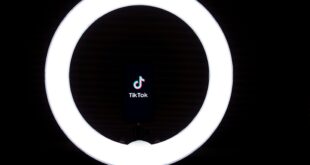When Apple introduced its Intelligent Tracking Prevention feature in June, we knew Google won’t be lagging behind in retaliation.

The initiative taken by Apple of releasing the Intelligent Tracking Prevention feature was aimed towards third-party trackers to limit them from tapping into the user’s cross-site browsing data. This feature is all set to be released with the new version of Safari, aimed to be launched this fall.
In response to the Intelligent Tracking Prevention feature, Google sent out a mass email to all its AdWords advertisers outlining all the changes it is set to make to its ad performance tracking. To understand this feature better and the impact that it may have on our advertising strategies, let us take a deeper look at what exactly is Intelligent Tracking Prevention.
With this new feature, third-party cookies that track users can now be used for only 24 hours, starting from the time the user visits a site via the Safari web browser. When these 24 hours are up, these cookies can be used for solely log-in purposes. After 30 days, these cookies will be purged completely from the system. This implies, that unless the user is a convert (within the first 24 hours), the conversion attribution will be completely lost. Considering that a lot of traffic comes from Safari browsers, the conversion attribution of Google AdWords is going to take a major setback.
In retaliation, Google has made some of its own tiny changes that adapt to the Intelligent Tracking Prevention feature of Apple. A new cookie has been developed for capturing conversion data from Safari to keep conformance with Apple’s guidelines around the feature. According to Google’s spokesperson, “these changes are designed to work for all browsers, but are timed to adapt to the new settings Apple is introducing. Our goal is to limit interruptions to our users’ experiences and to preserve our partners’ ability to evaluate their investments in digital advertising.”
The new cookie, also known as _gac, extends the Google Analytics tracking to include AdWords conversion tracking. All ad click information will be stored in the _gac cookie when auto-tagging has been enabled. Those advertisers who have linked their Google Analytics account to their AdWords account will see absolutely no change in their ad campaign. For those who haven’t, Google will record all conversion activity within the 24-hour time frame. After that period, it will use modeling that is based on historical conversion activity to record all conversions from Safari.
Are you an advertiser? How do you think this new feature is going to affect your ad campaign? Let us know what you think about this change by leaving your comments below.
